Drug therapy is a fundamental part of general internal medicine, and is as demanding a process as diagnosis. The four sections of this practical guide cover the principles of clinical pharmacology, including drug development, use, and adverse reactions; the practical management of diseases with drugs; drug prescription; and over 300 commonly used drugs in a separate pharmacopoeia, identifying their generic names, usage, modes of action, properties, and effects.
“Handbook of Agricultural Entomology” has been added to your cart. View cart
Oxford Textbook of Clinical Pharmacology and Drug Therapy
KSh 2,955.00
Drug therapy is a fundamental part of general internal medicine, and is as demanding a process as diagnosis. The four sections of this practical guide cover the principles of clinical pharmacology, including drug development, use, and adverse reactions; the practical management of diseases with drugs; drug prescription; and over 300 commonly used drugs in a separate pharmacopoeia, identifying their generic names, usage, modes of action, properties, and effects.
1 in stock
Related products
-
Participation in Project Preparation: Lessons from World Bank-Assisted Projects in India (World Bank Discussion Papers)
KSh 1,000.00This study analyzes the extent to which the India program is meeting the World Bank’s objective of mainstreaming participatory approaches in project preparation and design. It includes ten projects in which participation was an overall project objective. These projects provided “good practice” lessons from a variety of social and natural resource management sectors. -
So…You Think You Know The Bible? Mass Market Paperback
KSh 495.00What two people was time altered for? What man got his head nailed to the ground? What two Old Testament characters never died? If you like Bible trivia, you’ll love So. . .You Think You Know the Bible? Packed with more than 700 mind-stretching questions-no fluffy stuff here!-this brand-new trivia challenge will fascinate and entertain readers for hours. Thirty categories of 25 questions each-including “Who’s Who,” “Biblical Geography,” and “We Dare You to Answer These!”-are accompanied by a scoring system to track your success. More great Bible trivia from Barbour!
-
21 Lessons for The 21St Century Paperback
KSh 1,695.00The future is here. Learn to live in it.
In twenty-one bite-sized lessons, Yuval Noah Harari explores what it means to be human in an age of bewilderment.
How can we protect ourselves from nuclear war, ecological cataclysms and technological disruptions? What can we do about the epidemic of fake news or the threat of terrorism? What should we teach our children?
Yuval Noah Harari takes us on a thrilling journey through today’s most urgent issues. The golden thread running through his exhilarating new book is the challenge of maintaining our collective and individual focus in the face of constant and disorienting change. Are we still capable of understanding the world we have created?
‘Fascinating… compelling… [Harari] has teed up a crucial global conversation about how to take on the problems of the 21st century’ Bill Gates, New York Times
‘Truly mind-expanding… Ultra-topical’ Guardian
‘21 Lessons is, simply put, a crucial book’ Adam Kay
-
Qualitative Research Design
KSh 7,700.00Qualitative Research Design: An Interactive Approach provides researchers and students with a user-friendly, step-by-step guide to planning qualitative research. It shows how the components of design interact with each other, and provides a strategy for creating coherent and workable relationships among these design components, highlighting key design issues. Written in an informal, jargon-free style, the new Third Edition incorporates examples and hands-on exercises.
-
Netter’s Clinical Anatomy, 5th Edition
Offering a targeted, concise approach to clinical anatomy, Netter’s Clinical Anatomy, 5th Edition, is a portable, easy-to-read text that bridges normal anatomy to common clinical conditions. It features nearly 600 superb illustrations by Drs. Frank H. Netter and Carlos Machado that provide essential descriptions of anatomy, embryology, and pathology to help you understand their clinical relevance. Authored by John Hansen, PhD, an Honored Member of the American Association of Clinical Anatomists, this visually stunning text covers and reviews the sizable area of human anatomy and pathology in a quick, easy-to-grasp format.
-
Textbook of Global Child Health, 2nd Edition
KSh 9,562.00The second edition of the American Academy of Pediatrics Textbook of Global Child Health is pleased to contribute toward international efforts to improve the lives of the next generation. This new edition will help prepare and support child health professionals as they join international efforts on behalf of children.
A large multinational team of authors has joined together to produce the 2nd edition of this award-winning textbook, which focuses on 3 key areas:
- Foundational understanding of societal factors related to health and disease
- Appropriate care of children traveling internationally
- Clinical management of children in resource-limited areas
New in the 2nd edition:
- 29 updated chapters and sections
- New chapters on cardiology, neurologic disorders, nephrology, emergency medicine and critical care, and hematology/oncology
-
The Age of the Warrior-ROBERT FISK
KSh 995.00The Age of the Warrior: Selected Writings by Robert Fisk
A selection of Robert Fisk’s finest ‘Comment’ pieces from the Saturday Independent.
Robert Fisk has amassed a devoted readership over the years, with his insightful, witty and always outspoken articles on international politics and mankind’s war-torn recent history. He is best known for his writing about the Middle East, its wars, dictators and international relations, but these ‘Comment’ articles cover an array of topics, from his soldier grandfather to handwriting to the Titanic – and of course, President Bush, terrorism and Iraq.
-
Peace Kills – Softcover800
KSh 500.00In this latest collection of adventures, P. J. O’Rourke casts his mordant eye on America’s recent foreign policy forays. He first travels to Kosovo where he meets KLA veterans, Albanian refugees and peacekeepers, and confronts the paradox of ‘the war that war-haters love to love’. He visits Egypt, Israel and Kuwait, where he witnesses citizens enjoying their newfound freedoms – namely, to shop, to eat and to sit around a lot. Following 11 September, O’Rourke examines the far-reaching changes in the US, from the absurd hassles of airport security to the dangers of anthrax. In Iraq, he witnesses both the beginning and the end of Operation Iraqi Freedom and takes a tour of a presidential palace, concluding that the war was justified for at least one reason: criminal interior decorating.
Peace Kills is an eye-opening look at a world much changed since O’Rourke wrote his bestselling Give War A Chance – a book in which he presciently declared that the most troubling aspect of war is sometimes peace itself.

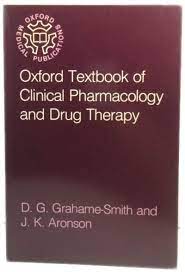
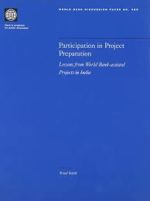

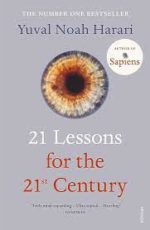
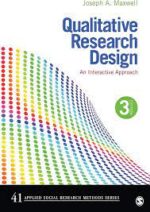
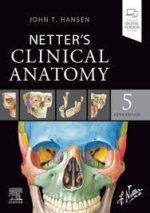
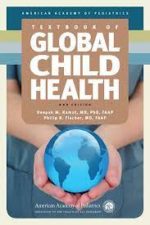


Be the first to review “Oxford Textbook of Clinical Pharmacology and Drug Therapy”